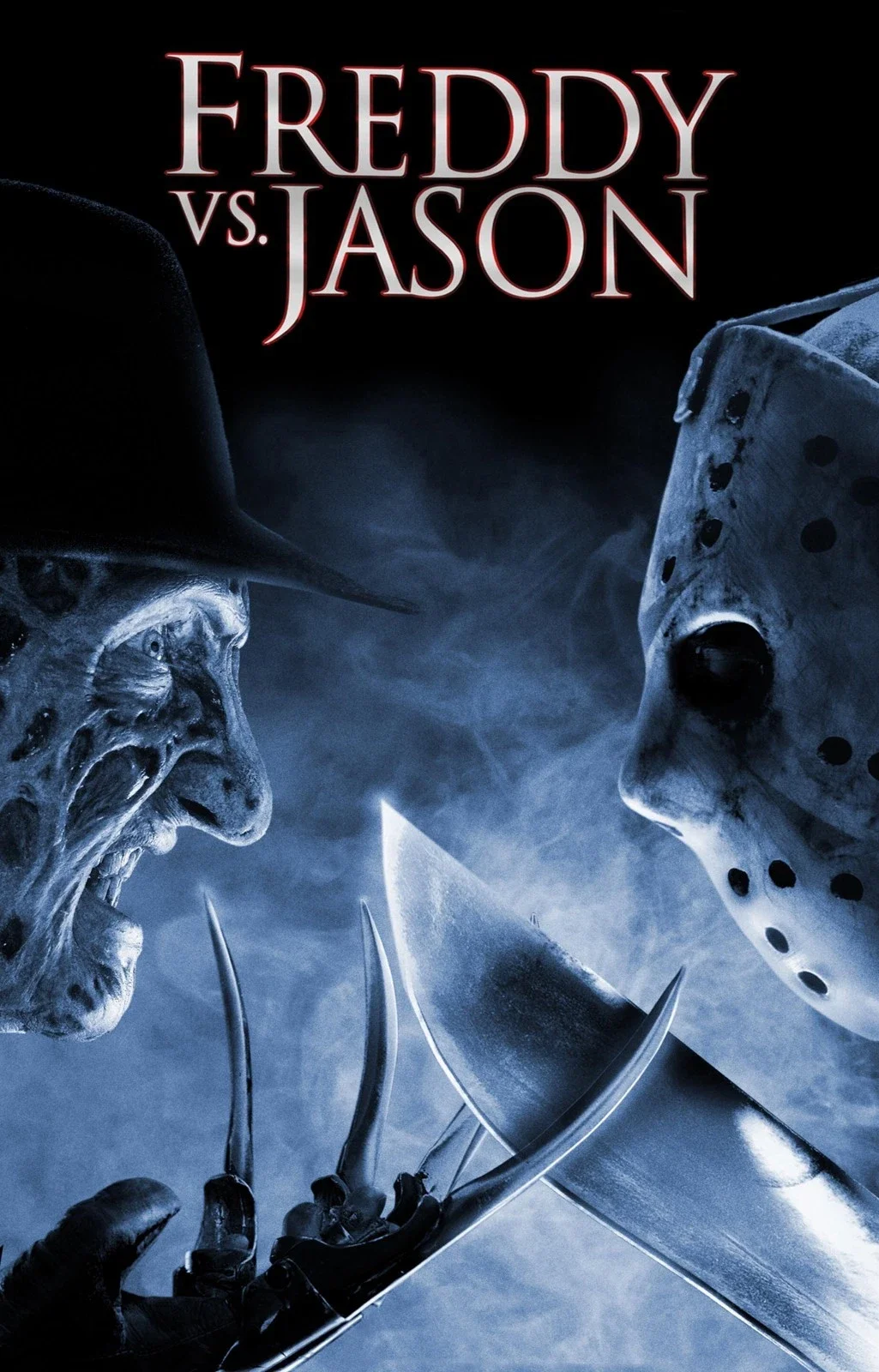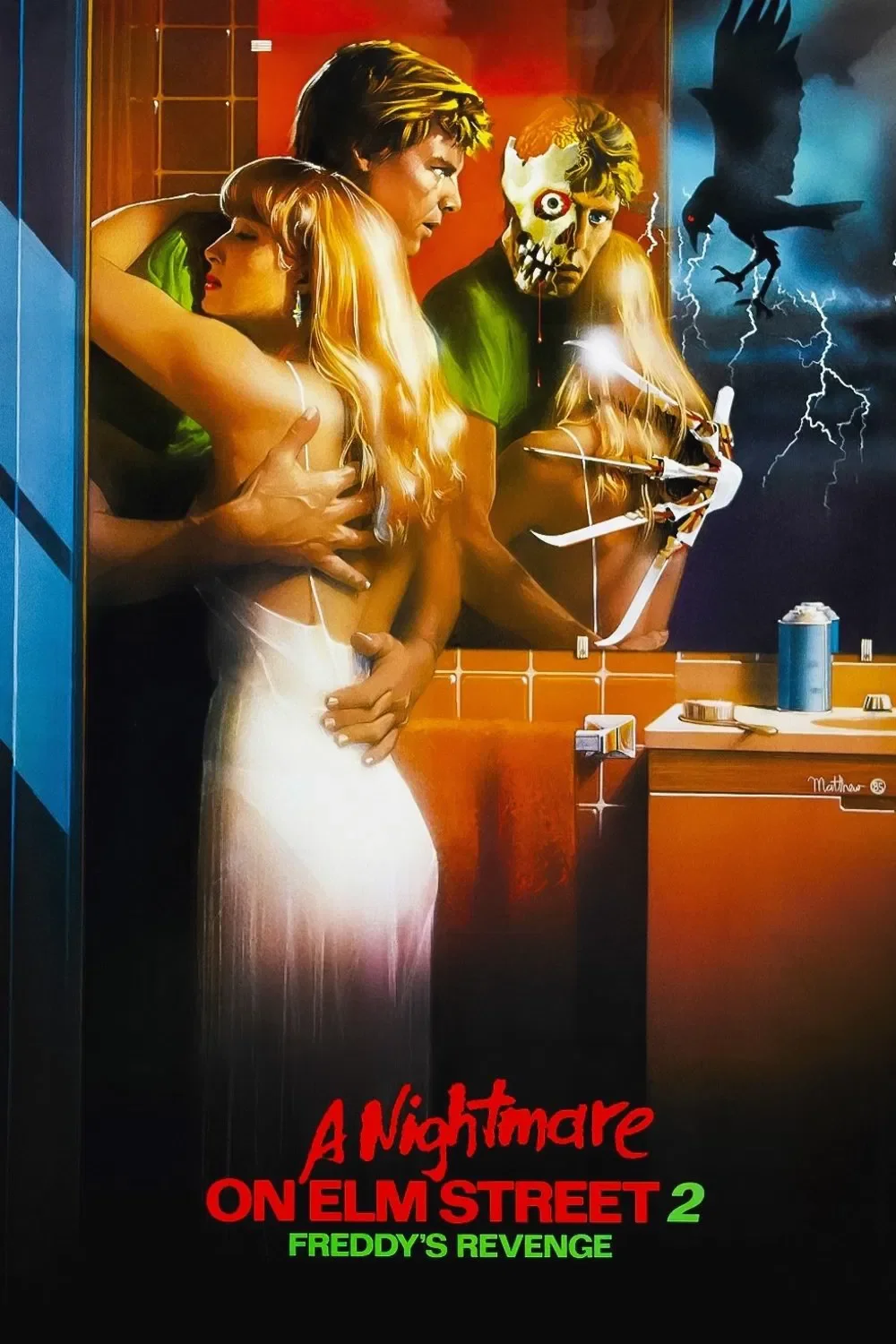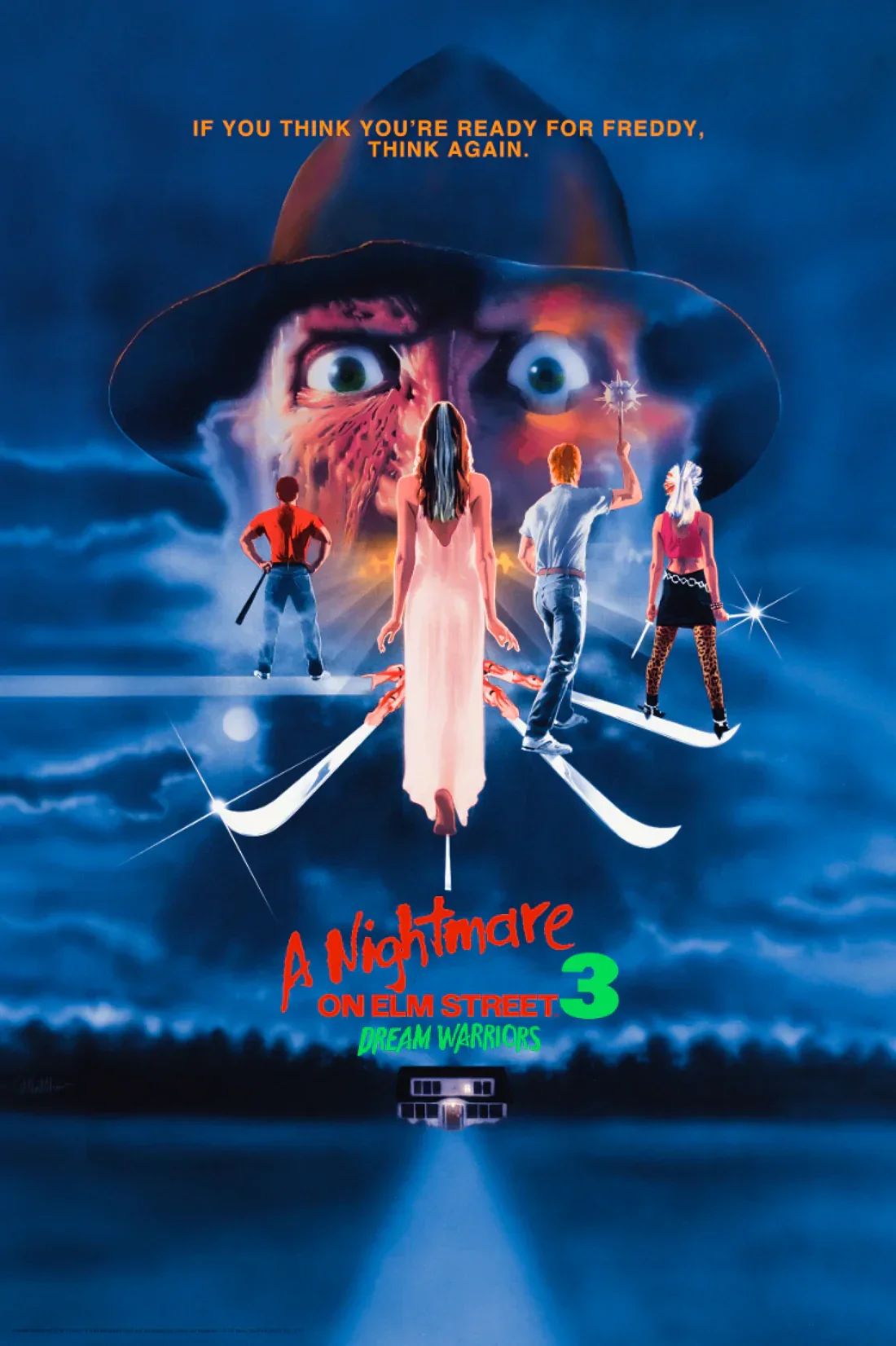Ranking A Nightmare on Elm Street: A Franchise of Nightmares, a Treatise on Love
There’s a strange kind of holiness to A Nightmare on Elm Street when you look past the slash-and-burn reputation it inherited. Beneath the surrealism and blood lies something few horror sagas even attempt: a meditation on fear as metaphysical participation. In Craven’s world, fear is not merely emotional — it’s ontological. To fear wrongly is to feed evil; to face it rightly is to starve it.
And yet, beneath all that terror runs another current — quieter but stronger. Love. Love is the one thing Freddy cannot mimic, the one force that starves him completely. Across nine films, the series becomes an uneven chronicle of vigilance, decay, and renewal — a long dream about the world’s inability to stay awake, and the faint but persistent promise that perseverant love can rouse it again and provoke it to renewed watch.
Humanity’s proclivity over time to lose its grip on courage ensures, temporally speaking, that evil inevitably resurfaces. Fear returns, incarnates, feeds, and dies, only to rise again in each generation’s fatigue as the subsequent generation dawns, beginning to walk toward its own unavoidable mantle. But even that repetition carries with it hope and universal truth: what must feed cannot be eternal. Evil’s cyclic nature is a complete proof of its finitude. Love, by contrast, renews without consuming.
What follows is not just a ranking, it’s a moral cartography of a franchise that began as spiritual and theological insight disguised as over-the-top fever-dream nightmare-scape.
9. Freddy’s Dead: The Final Nightmare (1991)
The subtitle promises finality, but this is where the dream nearly dies of laughter. Freddy becomes a jester of his own corruption, a parody of the metaphysical terror he once embodied. While there are some elements I truly appreciate in this film (most notably the deepening of the lore and the character of his progeny — to avoid spoilers, I won't say who!), I can't place this any higher because, when evil is played for amusement, the joke turns on the world that laughs. The film’s main crime is forgetfulness — it treats dread as decoration, but it's also plagued by a truly mediocre script that attempts to do way too much in its runtime. I also find that this film, on a purely cinematographic level, came up quite short, and isn’t particularly fun to look at. Ultimately, though, by attempting to make evil entertaining, it participates in the very numbing the series once valiantly warned against.
8. A Nightmare on Elm Street 5: The Dream Child (1989)
Ambitious but spiritually confused, this entry drifts toward biological fatalism. The imagery of birth and inheritance could have been profound, yet the film mistakes genetics for guilt. Evil here is simply pathology, not presence; fear is chemical, not moral. While it's true there is a through-thread of this inheritance throughout the franchise as a whole (mostly by way of Amanda Krueger's own backstory), in denying the will its role, the story robs humanity of responsibility, obliterating the basis for its call to vigilance, and, therefore, of its ability to strive toward redemption — or valor. Thus, the child motif hints at hope but delivers only fatalism. The dream has become biology.
7. Freddy vs. Jason (2003)
Two demons duel while mortals watch, numb and faithless. Accidentally, the film stumbles into allegory: evil consuming itself while humanity cowers in the wings. The apocalypse by spectacle is fitting — a sermon from a culture that confuses dominance with deliverance. It’s grotesquely fun, occasionally sharp, certainly much more well-crafted than I anticipated (shockingly, it actually made me feel something related to Jason as someone who is not a Friday the 13th fan).
Having said that, the film is also ultimately tragic as the living wind up relying on the nightmares and evils of the world for a majority of their fight, which, while corrected by the end of the film, comes across as a confusion of the tonal elements that make the Elm Street franchise so compelling — though I can't say much about how this meshes with or diverges from the Friday the 13th franchise as a whole.
6. A Nightmare on Elm Street (2010)
The remake pleasantly surprised me overall. I fully expected this to wind up at the absolute bottom of this list when I clicked play, and it absolutely stumbles in some clear ways. Most notably, it remembers the surface but forgets the soul. By grounding Freddy in pathology—making him only (or at least most solidly) predator as opposed to principality, it drains the story of its sheer metaphysical voltage. Evil becomes a diagnosis, not a mystery; fear becomes a stimulus, not a summons to courage. Modern horror’s great error lives here: to mistake visibility for understanding.
The film’s missteps don’t end at the thematic level though as I also found that the actual plot beats themselves weren't separated enough from the original 1984 film for this one to stand much on its own as an Elm Street film. The thing is, though, as a horror film writ broadly, it's probably among the most compelling in the franchise. It's exceedingly well-shot, and the plot, and overall package, is genuinely the most horrific in the whole collection — though it earns that by way of a disturbing pseudo-retcon to Freddy's character as it codifies very clearly that he was not ever merely a child killer but was also an outright pedophile. That note, while more truly more horrific and disturbing in some very serious ways, is considered controversial among the fans and is more of a mixed bag rather than a clear positive or negative for the film.
In the clear positives category, though, the characterization across the board was above standard for the franchise, earning true concern for most of the protagonists that grace the screen throughout its runtime. The script, however, was slightly uneven with a few too many rug-pulls regarding how the film establishes the true protagonists. Just as I found myself getting truly invested in a given character, they were removed and replaced, and that quickly became disorientating. Overall, though, the result is technically competent, truly horrifying, but spiritually and thematically more hollow than the films that placed higher in this list.
5. A Nightmare on Elm Street 4: The Dream Master (1988)
Alice inherits the mantle of vigilance but lacks Nancy’s spiritual clarity. That seems to have been by design too since the script goes out of its way to underscore her mousiness in its early bits. Of course, the upshot is that there is a compelling and enjoyable character arc for Alice by the end. Moreover, the mirror motif is apt: Freddy no longer seemingly “creates” evil; he reflects it.
The film dazzles visually. The choreography of nightmares is operatic and is actually fun, with a score that carries a certain hard-to-identify "cool" factor which I have come to associate with the films in the franchise, but beneath the spectacle lies a warning: evil feeds on fascination. Every gaze that lingers becomes nourishment. The concept here revolves around a core theme: the true dream master is the one who loves reality more than illusion — who refuses to let fear or fascination eclipse affection for what is good and real. There are also some nice undercurrents of friendship, compassion, and healing from trauma. Overall, this is one of the better films in the franchise by a fairly large margin.
4. A Nightmare on Elm Street 2: Freddy’s Revenge (1985)
Often misread through a modern lens, this sequel is more obviously, and more coherently, read otherwise. The contemporary reading (particularly regarding potential homosexual themes) is, in my view, an anachronistic eisegesis imposed long after the fact. If one takes the film on its terms, reading in context, it becomes clear that the horror here is not a repression of taboo desire, but surrender of will under duress.
Jesse’s ordeal is every person’s existential ordeal: the soul cracking under fear’s whisper, the terror of becoming the vessel of what one despises, or even of the possibility of becoming such. Freddy’s possession dramatizes a metaphysical truth — fear seeks flesh because evil is impotent without corporeality to some degree. Evil always requires incarnation. The film’s uneven execution cannot obscure its moral clarity: when vigilance falters, darkness borrows the body.
3. Wes Craven’s New Nightmare (1994)
Craven resurrects his own myth and, with it, the franchise’s conscience. Freddy re-emerges not as a man but as a spirit demanding belief — a demon that feeds on neglect. Heather Langenkamp, playing herself and, in the film's revival of the best final girl of the franchise, Nancy, becomes both actress and archetype: the artist rediscovering that imagination itself carries moral weight. The film’s genius lies in its theology of art — evil grows when good men and women forget why they create and fail to hold their creation accountable and in alignment.
Fear feeds on disbelief, but love, in the form of maternal devotion and creative faith, seals the door. When Heather descends into the dream to rescue her son, she enacts the series’ central creed: perfect love drives out fear perfectly. The film itself is also much more well-shot than many of the preceding entries, with strong acting and a solid, though admittedly slightly ambitious, script. Overall, it's no surprise that this entry often takes high places in lists such as this one.
2. A Nightmare on Elm Street 3: Dream Warriors (1987)
If the original is scripture, this is its psalm. Nancy returns as counselor, not victim, and her compassion for the children is the film’s heart. Dream Warriors understands that courage alone is insufficient; only love disarms fear completely. Nancy’s mentorship — her willingness to risk herself for another — is the franchise’s most luminous moment (though such is echoed throughout and most notably in New Nightmare).
“In your dreams you have some power,” she tells Kristen, and that power is not arrogance but communion. The community of survivors becomes a fellowship of love standing against isolation, the very inverse of Freddy’s ersatz dominion. Nancy becomes a true spiritual martyr, and her spiritual martyrdom becomes a benediction that keeps the dream of goodness and call to perseverance in morality alive.
1. A Nightmare on Elm Street (1984)
The origin and the indisputable summit. Craven’s film is a revelation disguised as horror — a study in how evil enters through fear and departs through faith and love. Nancy Thompson is not merely “final girl” but moral pilgrim. Her battle spans body, mind, and spirit. Freddy is not her repression; he is evil’s echo, seeking form through her fear.
Nancy’s triumph is temporal yet absolute. She conquers not by weapon or spell but by love — love for her friends, her mother, the truth, the light. Like Frodo Baggins at the edge of Mount Doom, she bears evil’s burden to its brink, falters for a breath, yet refuses its dominion. Her courage is faith made visible, her endurance the evidence of unseen grace.
And still, the nightmare returns. Humanity cannot forever master its own fear. Each generation falters or forgets and thus permits again the rise of darkness; but even that repetition fulfills truth: evil’s cycle proves its finitude. That which must feed will one day starve. Every act of love hastens that end. The ouroboros turns inward until it consumes itself, becoming a spiral of self-corruption, and dawn breaks at last. This film is easily the most well-made in the series, with the sharpest script, and a strong balance between the now signature Elm Street charm and humor and the much more serious tonal undercurrents and thematic messages found embedded throughout. Craven succeeded in establishing a true horror icon while also conveying incredibly salient, potent, meaningful, and timeless truths.
Love, Fear, and the Finite Dream
Across nine films, A Nightmare on Elm Street becomes not merely a franchise of highly engrossing horror films, but also a mostly well-articulated moral and spiritual anatomy of humanity itself. Fear gives evil its form; vigilance denies it; love destroys it. The repetition of terror is not only the echo of mankind’s own frailty, but also prophecy: evil cannot endure because love renews endlessly.
Every act of compassion — Nancy shielding Kristen, Heather rescuing her son, Alice fighting for her child — starves Freddy’s ultimately vacuous self-proclamations of dominion. Each refusal to surrender affection for cynicism affirms the deepest truth Craven ever wrote: evil is ontologically negative, purely parasitic upon the very good it hates; love alone creates, fear merely imitates.
The nightmare may return, but so too will the morning; so long as there are those among us brave enough, wise enough, to bar fear's march and persevere in the face of overwhelming odds, love will always be awake long before.
If you enjoyed this article, don’t forget to check out this article on what most people get wrong about A Nightmare on Elm Street (1984) or this review of A Nightmare on Elm Street (1984)












